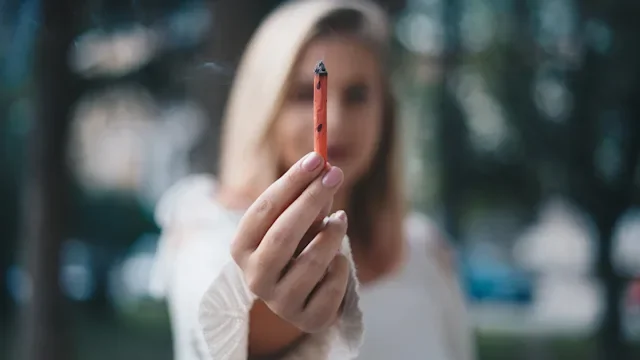Key takeaways:
Alcohol withdrawal, especially if you’ve been drinking heavily over a long period of time, can be dangerous and even deadly without the right treatment.
Symptoms of alcohol withdrawal include anxiety, tremors, sweating, nausea, and more severe symptoms like fever, mental confusion, and seizures.
The safest way to go through alcohol withdrawal is under medical supervision.
Alcohol withdrawal happens when someone who’s been drinking a lot of alcohol over a period of time suddenly stops. Withdrawing from most types of drugs is uncomfortable. But alcohol is one of very few substances that can actually kill you during the withdrawal period.
It’s possible to get through alcohol withdrawal safely. But it’s important to get the right treatment and not try to quit drinking, especially cold-turkey, on your own.
Here’s everything you need to know.
Search and compare options
What triggers alcohol withdrawal?
Why people go through withdrawal when they stop drinking is due to the way alcohol affects the brain. Withdrawal from any drug happens because your body has become physically dependent on the substance. For example, if you suddenly quit drinking coffee after drinking 10 cups a day, you might get a headache.
In the case of alcohol, this happens because it’s a central nervous system depressant, and it changes the way your brain works. Specifically, drinking alcohol causes your brain to produce more GABA (a neurotransmitter that makes you feel calm and euphoric) and less glutamate (a neurotransmitter that makes you feel excitable).
To make up for this, your brain starts producing less GABA and more glutamate to balance things out. When you suddenly stop drinking alcohol, your brain can’t catch up, and you feel the effects of these unbalanced neurotransmitters. This is what leads to withdrawal symptoms like jumpiness, tremors, and anxiety.
Whether or not you go through withdrawal when you stop drinking depends on many different factors. These include how much you usually drink, how long you’ve been drinking, and any other health conditions you have. In general, if you’ve been drinking heavily over a long period of time, you’re more likely to experience withdrawal when you stop.
How is alcohol withdrawal diagnosed?
Alcohol withdrawal is usually diagnosed in the hospital or a rehab center, where people might go intentionally to detox or because their withdrawal symptoms have become a medical emergency. Healthcare providers often use an assessment called the Clinical Institute Withdrawal Assessment for Alcohol, or the CIWA-Ar, to figure out how severe someone’s withdrawal symptoms are. The scale asks about different symptoms, including nausea, hallucinations, and anxiety.
Your healthcare provider might also conduct a physical exam to see how severe your withdrawal symptoms are. They may check for signs of dehydration, a fast or abnormal heart rate, and fever, among others.
Read more like this
Explore these related articles, suggested for readers like you.
Symptoms of alcohol withdrawal
The symptoms that can come along with alcohol withdrawal range from moderate to life-threatening. Some common mild symptoms include:
Anxiety
Tremors
Changes in mood
Sleep problems, including nightmares
Jumpiness
Upset stomach
Headache
Fatigue
Sweating
Loss of appetite
Dilated pupils
Most people going through alcohol withdrawal only experience these mild symptoms. But around 10% of people with alcohol withdrawal get more severe and even life-threatening symptoms, including:
Fever
Fast breathing
Severe sweating
Mental confusion
Seizures
Hallucinations
If you’re experiencing any of these serious symptoms after quitting alcohol, get medical care immediately. These symptoms can be fatal when they’re untreated.
Alcohol withdrawal timeline
When, for how long, and how severely you feel withdrawal symptoms will depend on your specific situation. Although your symptoms may not follow this timeline, many people experience withdrawal in three stages. Most people recover from their symptoms within a week.
First stage: Mild symptoms
Symptoms of alcohol withdrawal can begin within 6 hours of having your last drink. Usually, the first symptoms are uncomfortable but mild. They can include:
Nausea
Tremors, often referred to as the “shakes”
Changes in your blood pressure
Anxiety
Insomnia and other sleep problems
Most people will recover from alcohol withdrawal after going through these symptoms.
Second stage: Possible seizures and other serious symptoms
For most people who get them, serious symptoms, including seizures, come on within the first 48 hours after your last drink. Over 5% of people going through alcohol withdrawal will enter this phase and experience seizures. Symptoms usually peak between 24 and 72 hours after the last drink. If you haven’t developed any serious symptoms like seizures after 48 hours, then it’s likely that you’ll recover. However, it’s still possible you could develop them later on, so you should still seek medical care.
Third stage: Delirium tremens may begin
Around 50% of people who have withdrawal seizures will eventually develop delirium tremens, or DTs. Most people who develop DTs do so between 48 to 72 hours after they stop drinking. That makes the first few days after you quit drinking the most critical and dangerous time during the withdrawal period. It’s important that you seek medical care during this phase, especially if you’re presenting with symptoms of DTs.
Possible fourth stage: Post-acute withdrawal
Some people who go through alcohol withdrawal may experience symptoms for a longer time (from a week to months) after quitting drinking. This is called post-acute withdrawal syndrome, or PAWS. Symptoms of post-acute withdrawal include continued trouble sleeping and mood problems.
Can alcohol withdrawal be fatal?
Alcohol withdrawal can absolutely be fatal, especially if you try to go through it on your own.
Although they’re relatively rare, the following are three conditions related to alcohol withdrawal that can be life-threatening. If you notice any of their symptoms, it’s important to get medical care immediately.
Delirium tremens
Delirium tremens, or DTs, is the most severe form of alcohol withdrawal, and around 2% of people with alcohol dependence get it. Its symptoms include:
Audio and visual hallucinations
Mental confusion
Rapid mood changes
Energy bursts
Severe sweating
Fever/hyperthermia
Grand mal seizures, which can cause muscle contractions and loss of consciousness
Agitation
Sleepiness or fatigue
DTs aren’t always fatal, but they can be. Up to 25% of people who get DTs die from them. That number comes down to only 1% for people who get medical care for their symptoms. Going into DTs is considered a medical emergency. If you’re noticing any of these symptoms, call 9-1-1 or get to your nearest hospital right away.
Seizures
Alcohol withdrawal seizures usually come on before DTs. It’s rare, but possible, to die from seizures. And reports show that around half of people who start having seizures during withdrawal will develop DTs, so it’s an important symptom to pay attention to.
Heart failure
Alcohol withdrawal (especially when you’re experiencing DTs) might also lead to heart problems because of the way alcohol affects your organs. More research is needed to be able to say for sure what the connection is between fatal heart failure and alcohol withdrawal.
Is it safe to go through alcohol withdrawal on your own?
The safest way to go through alcohol withdrawal is under the supervision of a healthcare provider. Being in a hospital or detox setting can make sure that qualified professionals are always around to help you be as comfortable and safe as possible during the withdrawal process.
You should especially be careful of going through alcohol withdrawal without medical supervision if you’re at high risk for developing DTs. Some factors that may put you at high risk include:
You’ve been drinking alcohol every day over a long period of time (perhaps you might even be considered a “lifetime drinker”)
You’ve gone through withdrawal before, and got DTs then
You’ve been having seizures, or have a history of seizures
You have an infection
Ultimately, the only person who can assess your risk for having alcohol withdrawal complications (like DTs) is a healthcare provider. They’re also the only ones who can adequately monitor you during withdrawal to make sure mild symptoms don’t become more serious.
How to safely get through alcohol withdrawal
It’s 100% possible to get through alcohol withdrawal safely with the right medical care. There are many effective treatments available to get you through withdrawal and recover from alcohol altogether. Seeking treatment is always a much safer option than trying to go through alcohol withdrawal on your own. A healthcare provider can tell you whether you can go through withdrawal at home or if you should get medical treatment. As always, ask your doctor before attempting withdrawal.
Here are some of the most commonly used treatments to help people get through alcohol withdrawal and further recovery from alcohol addiction.
Medications for alcohol withdrawal syndrome
Medications are one of the first-line treatments to address serious alcohol withdrawal, and they can literally save your life if you have DTs. A class of anti-anxiety medication called benzodiazepines are often prescribed to treat DTs and help your brain adjust to the sudden absence of alcohol.
Other medications may also be prescribed to help you deal with symptoms and cravings. These include vitamins to fix nutrient deficiencies and anticonvulsants (medication to prevent seizures). After you’ve safely gotten through withdrawal, you might be prescribed other medications to curb alcohol cravings.
Detox
If your withdrawal symptoms are mild, you may stay in a detox facility. Detox is designed to help people going through the most uncomfortable parts of the withdrawal process, and it can range from detoxes in hospital settings to luxury detoxes in private homes. In detox, you’ll be provided with medical supervision as well as programs to help you get started on the road to recovery.
Note that people experiencing serious withdrawal complications like DTs need to be treated in a hospital setting. DTs are a medical emergency that needs immediate attention.
Continuing treatment
Once you’ve safely gotten through alcohol withdrawal, the rest of your recovery journey can begin. Options for continuing treatment include residential programs, intensive outpatient programs, and sober living facilities. This is what’s often called “rehab.” Rehab can lower the chances that you relapse ー because going through the pain of alcohol withdrawal once is enough.
The bottom line

Why trust our experts?


Alcohol withdrawal is dangerous, and it can even be fatal. If you’re a lifelong heavy drinker, don’t try to go through withdrawal on your own. Instead, get connected to a medical detox facility. The right medical treatment can help you get through alcohol withdrawal safely and connect you to resources to continue your recovery journey.
If you or someone you know struggles with substance use, help is available. Call SAMHSA’s National Helpline at 1-800-662-HELP (4357) to learn about resources in your area.
Read more:
10 Questions to Ask Yourself If You Think You Could Be Drinking or Using Substances Too Much
How to Create a Strong Action Plan That Will Help You Avoid a Substance Use Relapse

















